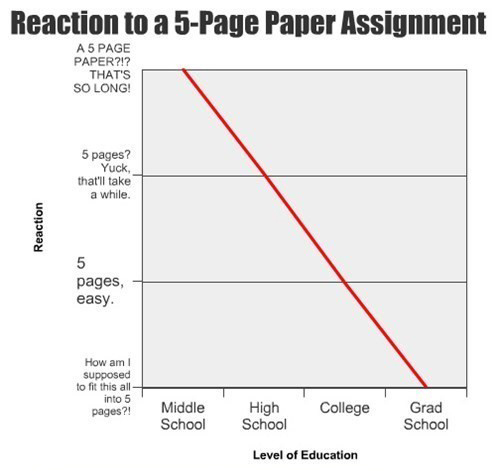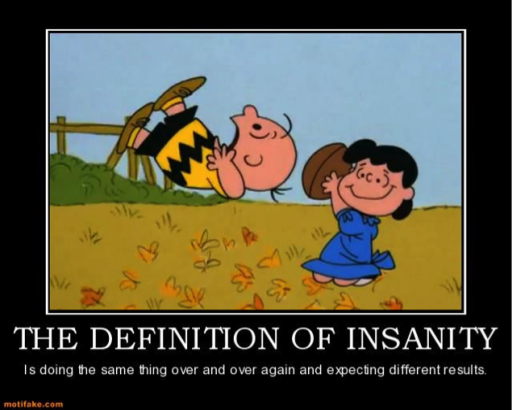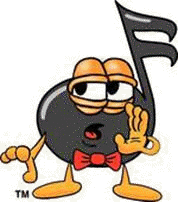|
Research in Music Education I
MUSI 5341

Tarleton State University
Instructor: Dr. Vicky V. Johnson
vjohnson@tarleton.edu
254/968-9245 (Office)
Course Outline |
Syllabus
Assignments Discussions
Course Readings
Turnitin
Writing APA
TSU
Writing Center | Week # |
Week Dates
Sun-Sat | Topic for Study | Discussion | Due
@Midnight | Assignments | Due @ Midnight | |
1 |
Jan 11-20 | Introduction to Research
Writing | Discussion 1 | Post: Fri
Jan 19 Resp.: Sat
Jan 20 | Assignment 1 |
Sat Jan 20 | |
2 |
Jan 21-27 | APA Style and Formatting How to Find Stuff | Discussion 2
Completion grade only | Post: Fri
Jan 26 Resp.: Sat
Jan 27 | Assignment 2 | Sat
Jan 27 | |
3 |
Jan 28-Feb 3 | Research Topic Types of Research | Discussion 3 | Post: Fri
Feb 2 Resp.: Sat
Feb 3 | Assignment 3 | Sat
Feb 3 | |
4 |
Feb 4-10 | Parts of a Research Paper | Discussion 4 | Post: Fri
Feb 9 Resp.: Sat
Feb 10 | Assignment 4 | Sat
Feb 10 | |
5 |
Feb 11-17 | Research Proposal Draft | Discussion 5 | Post: Fri
Feb 16 Resp.: Sat
Feb 17 | Assignment 5
To be submitted, not graded | Sat
Feb 17 | |
6 |
Feb 18-24 | Revise Research Proposal | Discussion 6 | Post: Fri
Feb 23 Resp.: Sat
Feb 24 | Assignment 6
Not to be submitted or graded | Sat
Feb 24 | |
7 |
Feb 25-Mar 2 | Final Research Proposal | Discussion 7 |
Post: Fri Mar 1
Resp.: Sat Mar 2 | Assignment 7 |
Sat Mar 2 | |
8 |
Mar 3-8 |
Glossary
Writing Checklist |
Discussion 8
Completion grade only |
Post: Fri Mar 8
Resp.: N/A | Assignment 8 |
Fri Mar 8 |
|
Introduction to the Course
Greetings graduate students!
Welcome to Research in Music Education I
Please follow the link to review the Syllabus which contains grading and policy information.
Note: Late penalties
will be embedded in the Canvas assignments at the rate of 10 points per
calendar day. It is very important to apply feedback from one assignment
to the next, so timely submission is required.
Deadlines are indicated as midnight to avoid confusion. Canvas uses
11:59pm, so don't wait until the literal "last minute" or you will be
penalized.
Please read these instructions about the
Discussions
Even if you have read these before, read them again!
On this Course Outline page, you will find links to the lectures for each week, as well as any general announcements to the class. The animated bullets to the right will designate "action" items, so be sure you accomplish these each week. There is an overview calendar at the top of this page for quick reference. Be aware that this is an organic document. It WILL change. You are responsible for what is on this page, not a hard copy that you printed off in the first week of the course. If you come across mistakes in the web pages in this course or dead links, I would appreciate it if you would let me know! 
Now, continue on to
Week 1 content below and let's get started!
|

|
Canvas/Computer configuration
If you haven't joined the
TSU Master of Music in Music Education Facebook group, please do so. Faculty will be posting announcements there and it's a great opportunity
to join a community of those who are dealing with the same challenges
that you may face. Follow the link below and request to be in the
group:
https://www.facebook.com/groups/1704246456469043/
Remember to refer to the FAQ page for general questions about the
Master of Music in Music Education program! |
If you have any questions, remember to use the 'Ask Dr. J' forum under 'Discussions.'
Others probably have the same questions you do.
If you are a
veteran in the program, please feel free to answer those
questions!

However, if you don't receive a response within 24 hours, or if you need a quicker answer, feel free to email me directly at vjohnson@tarleton.edu | |
Week 1
Lecture: Introduction to Music Research Keep in mind these memorable quotes from your reading:
"One of the most basic rules of writing is that an author never make statements he or she is not prepared to defend" (p. 4). "Readers have a right to believe that what they are reading is based on more than the author's opinion, even when it is clearly an opinion piece" (p. 17). "Those authors "who merely vent unfounded opinions and gut feelings (in essence, running off at the pen) are wasting the reader's time" (p. 17). "Never make the reader doubt your ability" (p. 18). "Make it concise, make it elegant, make it compelling" (p. 20).
After reading your assigned material for this week, please go back to Lecture 1 and review the introductory material on Research. Has your perception of research changed since you read it the first time? Lecture: Writing
There is a lot of information here,
but your grade on Assignment #1 will depend upon applying these
writing skills.
Those who have already taken a course with me will find this
familiar.
Read it again anyway!!!
Word Crimes
Watch this!

Assignment Grading and Feedback
Note:
I will be making "media comments" (short audio
recordings) in Canvas, so be sure to listen!
How do I write everything I need to say in such a short paper??

- Write as if there is no limit. Don't try to limit at first. When you have all of your content included,
- Take out filler phrases and unnecessary words. For example, "As was previously discussed, . . . " is not necessary in a short paper.
- Reword sentences to be more direct. For example, instead of "It was decided that . . ." use "Smith decided . . ."
| |
Did you know that Stephen King hates adverbs?? |

| ReadingSee the Syllabus for information about the textbook and other required materials.
Bellman, Chapter 6, “Research in Music,” pp. 92-115.
Bellman, Chapter 1,
"Writing about Music," pp. 1-20.
|

| Assignment
1:
A. Scholarly writing:
Choose any topic
related to music education and write one page (seriously,
ONLY one page; it will be returned to you if more than one
page) in a scholarly writing style. Apply all content from the
Writing
page to your paper. You will have to be direct and concise in order to address your topic in one page. Identify your topic immediately and don't waste space using long phrases and flowery language.
We
often do not realize how much of our writing is beside the
point. My
suggestion is for you to write your paper and take as much
space as is necessary to cover your topic. Write pages
and pages if needed. Then, go back and take out
anything that is not essential to the meaning of your
content. Sometimes it is difficult to be concise. You must leave out all unnecessary words and filler phrases.
Woodrow Wilson was once asked how long it took him to prepare his speeches. He said: "It depends. If I am to speak ten minutes, I need a week for preparation; if fifteen minutes, three days; if half an hour, two days; if an hour, I am ready now."
Use one inch margins, 12-point Times New Roman font,
indented paragraphs and double spaced. Other than that, I will not be
particularly picky about formatting.
That begins next week!!

Submit your paper in Word document form. Name the file
Assignment1_YourName and submit by the deadline on
Saturday at midnight.
B. Begin compiling a Glossary of Research Terminology
This will be an ongoing project throughout the course
to be turned in as Assignment
8 at the end of Week 8. You will be graded on the thoroughness and usability of your document. Format it for ease and usability. As you read each lecture and reading assignment, keep a running list
of research terms. These should be the terms that you encounter that are less familiar
(do not include common words that you already
understand). With
your handy glossary, you can easily review and learn the terms that you need to understand and write effective research.
|
C. Writing
Checklist
For your sake (and mine ;-): Each time you receive feedback
from me or your peers on an assignment or a discussion post, keep a
running list of your writing errors to use as a checklist on the
next submission. It's just silly to keep making the same
errors over and over. For example, if I mark on you paper to
use the Oxford comma (look it up), you should include on your
checklist to check your next paper to make sure you are using it. Don't lose points next time for the same error.

This Writing Checklist will serve as a reminder
to check the specific errors that you have made in the past. Here is
a template for you to
use. This is not a suggestion. You will also turn this
in later in Week 8.
These two assignments (B & C)
will be combined as Assignment 8 and turned in during that week. Do not wait until Week 8 to begin these. The purpose of
compiling them as you go is to help you with your writing and
understanding of research terms.
|

|
Discussion 1:
After reading Lecture 1,
choose one of the
Case
Studies and read it carefully. For your
original post, summarize the case study very briefly
so your classmates will understand the premise of the BS. Then offer another example similar to the one in the case
study that you have observed. Your example may be from
a newspaper or internet article, television program or ad,
or any resource that presented something as truth to you
that you call BS. Note: extra credit depending upon
the difficulty level of the case study chosen.
For your
responses, analyze your classmates' examples. Are
those examples also BS? Why? Provide your own
example similar to theirs to complete your response.
See the rubric in the
Discussion section for point values. The sooner you post your original answer, the more points you get. The deadline for all responses is Saturday at midnight.
Please review all instructions about the
Discussions before posting. | | |
Week 2 Lecture: APA Style and Formatting
My
Word!
Lecture: How to Find Stuff
Music Research Journals
APA Style Academic Writing Quiz (Assignment 2)
There are 100 questions in this
quiz.
You can take
the quiz as many times as you want in order to get a good grade.
Choose from the following resources:
1. Your APA manual contains all of this
information
2. Click on "Modules" in Canvas to find
tutorials and Quick Guides
3. If you look in other places (there
are many fine guides on the internet), be sure that the
information is specific to the 7th edition of the manual
to avoid errors.
My hope is that these APA resources
and quiz will help you to avoid writing and formatting errors in
all of your future papers and assignments.
For next week, be thinking about choosing a research topic.
You will not have time to actually conduct the research, but you
will write a research proposal as your final project.
|

| Reading Bellman, Chapter 8, “Style,” pp. 135-160
APA
Manual, pp. 153-191 |
|

|
Assignment 2: APA Style
Academic Writing Quiz
The purpose of this
assignment is to hone APA formatting and scholarly writing skills. This
is a quiz (a long one, so allow plenty of time) that may be a review for some of you who have been in
the program for a while; to others, it is new territory.
This quiz is a formative
learning assessment; that is, not only to find out what you already
know, but to allow you to learn through the process. Toward that end,
you may take the quiz as many times as you wish.
Look through the
tutorials and make some notes as you will be responsible for all of this
information from this point forward. There are lots of tutorials and also some Quick Guides under APA Style.
Follow the instructions on
the left side of this page and complete the quiz by Saturday at
midnight.
|
 | Discussion
2: Everyone is pretty tech-savvy these days. I'm sure you have bookmarked some great resources on the internet that would be of interest to your fellow classmates. List 5 web pages or sites that could be useful in a research endeavor. They might include sources of data, instructions or how-tos regarding research, link lists, information on music education topics, or any page that would be a worthy bookmark for this course. For each link, give the URL, a brief description of the site/page, and why it would be useful in carrying on music education research.
Note:
Please do not include those sites that are useful, but do not
relate to music education research such as vendors'
sites, blogs, forums, how-to sites, etc.
Post your list in the Discussion tab. This discussion will be graded for completion only. | | |
Week 3
In all your writing, be sure to format everything in APA Style.
Refer to your APA Style manual for all of those devilish
 details! details!
Lecture: Research Topic .
For examples on focused topics, go to the TSU Library page: www.tarleton.edu/library In the Discovery @ Tarleton blank, type in a search word that is of interest to you. Look through the list of articles that have been written about that topic. Notice how specific the titles are!
This will come in handy when you have to name your own research
topic.

Note: Narrowing your research topic and writing a good
research question is probably the most important part of this
course. Failure to sufficiently narrow your topic will cause you
delays.
Lecture: Types of research
Which type of research would your project be?
(For
the purposes of this course, please do not choose historical or
philosophical research or case study. All are legitimate
research types, but for foundational learning in research,
please choose a topic with a question that can be tested in some
way.)
Note: Now is the time to begin searching for sources on your research topics (research that has already been done on the subject). Review How to Find Stuff
for assistance. This is the best way to be informed and to be able to focus your research question. Also, your assignment next week will be a literature review, so be sure to begin
an Annotated Bibliography for your own use.
Note #2:
Please proofread your
assignments! I would much rather zip through grading your
papers so I can go outside and play, rather than having to
correct all of the sentences where you left out a word or
committed other egregious, but totally avoidable errors.
Read your paper aloud and
find all of these errors. I know you are busy, but these
details are important and it makes you appear careless, if not
incompetent, to write like that. A major objective of this
course is to ensure that you can communicate in writing in a
professional and credible manner.
Note #3:
A conclusion is not a "wrap-up" consisting of a couple of
general statements, nor is it a brief summary of what you have
already written. Use your critical thinking skills to synthesize
your findings, to identify current applications, to evaluate
your topic, etc.
Note #4:
A typical response for this
week's discussion question often has 3 parts (and points will be
deducted for this type of answer):
1. "That's a very interesting
question."
2. "At my school . . . "
3. Asks one or two
questions
Those typical responses are
incomplete. VERY rarely do I see for this assignment a research question that
has been narrowed sufficiently and that has specific steps
included to measure the data to answer the question. Whether it is interesting is irrelevant. Help your
classmates make the question specific and measurable! |

| Reading:
Read
"Who Enrolls in High School Music? A National Profile of
U.S. Students, 2009-2013"
Go to the
Tarleton library:
https://www.tarleton.edu/library/
and put this
title in the search blank.
|
|

|
Assignment
3:
Read the following research
article:
Go to the Tarleton Library and put the title in the search box to find
the complete article. Then write a short paper that answers the
following questions:
-
What was the research
question?
-
What was the rationale?
-
What type of research was
used?
-
What test
was used to answer the research question?
-
What were the basic
findings?
Write your paper in APA
Style, but without an abstract or other sections that will not be
necessary in order to complete the assignment. From this point forward,
always use a Title page. Give your paper a
title like "Research Article Review" so that your running head can be
the same throughout. Use in-text citations when you refer to the article and include the article in your reference section at the
end of your paper. You can use headings to separate the sections
as necessary. Don't forget a brief conclusion.
I challenge you in this
assignment NOT to use the words 'I'
or 'my' in your writing. Try to be as objective as possible in your
assessment of the article.
In addition to the lecture this week, review the
Writing lecture from Week 1 for guidelines on academic writing.
Submit your paper in
Word document form. Name the file Assignment3_YourName and submit
by the deadline on Saturday at midnight.
|

| Discussion
3: After reading the lecture for this week, come up with two research topics that you are interested in exploring. For each research topic,
devise a research question and explain your rationale.
What test will you use to answer the question? Follow the guidelines included in this week's lecture. Post this information in the discussion forum.
You should respond to your classmates by helping them refine their research questions and to choose which one would work best in a research project. Also be sure that they have answered the bold questions above in
their posts. A complete response will address both of
their topics, not just one. A complete response will also provide
information that will result in revisions!
Remember,
a rationale is not why you are interested in a topic or why
you want to know, but why the study is important to the discipline
and justification as to why it should be done. Remember that your topic should be
very specific, so narrow your focus. Your research question should also be
one that can be measured and/or tested. Go back and re-read the lecture on Research Topics to test your ideas before submitting them.
Let me emphasize that you should not choose a topic that you intend
to prove because you are already convinced that you know the answer. Choose a topic that you wonder about ("I wonder whether X or Y. How
can I test that?)
See the rubric in the
Discussion section for point values. The sooner you post your original answer, the more points you get. The deadline for all responses is Saturday at midnight.
| | |
Week 4
Reread "The Author's Opinion: Clarity and Restraint" beginning on p. 17 of your text
Lecture: Parts of a Research Paper 
For your Discussion
Assignment:
Remember when Twitter would
only allow 140 characters?
(Yes, I know it's called "X"
now, but we are going old school here)
Just like our assignment to write ONLY one page, brevity requires
clarity.
You have to really understand your topic to answer
these questions in 140 characters each.
Remember that spaces and punctuation also count as
characters.
Use "Word Count" under the Review tab in Word to
get an exact count.
Can't wait to see what you come up with!
  Notes
on Assignment 4 Notes
on Assignment 4
Having graded many of these in the past, here are
some writing/formatting errors that students make that cause their
grade to plummet (that are easy to avoid):
-
Using direct quotes when
paraphrase or synthesis is possible. This is a biggie!
-
Capitalizing every word in the
titles in their reference list. Check out your APA manual
for examples.
-
Stating your opinions or making
editorial comments in the Literature Review section
-
Leaving out words, typos in
sentences (PROOF-READ!!)
-
Not using a title on the first
page of text
-
Not right-justifying the page
numbers (all the way to the right 1-inch margin)
-
Using contractions
-
Using personal pronouns
If you are working on clarity and writing
direct sentences, look for the small words: of, in, that,
which, who, at, on, by, into, but, after, like, for . . . Yep, those are prepositions and if you use a lot of them, you may
be relying on prepositional phrases instead direct noun-verb
structures. CAUTION: Assignment 4 includes a Literature Review,
not an Annotated Bibliography A literature review answers this
question: What is already known about my topic? An annotated
bibliography describes the content of each individual source for the
purpose of identifying its relevance and validity to be used as a
source for your study. NOTE about your introduction: Please
review
what should be included in an introduction. Please remember
that, regardless of your passion for any topic, you must remain
objective. Your introduction should include a very brief summary of
how you will collect data. Your proposal is NOT for a case
study. Look up that definition. It is a perfectly acceptable form of
research, but outside the requirements for this assignment. |

| Reading:
APA Manual:
pp. 111-127) Phillips: Chapter 3 "Reading Research" (pp. 30-45) |

| Assignment
4
Now that you have refined and narrowed your research
question, you need to turn that question into a title.
Your title should not be in the form of a question from this
point forward. Write an introduction to your proposal
(not an introduction to your literature review) and a literature review of at least 6 articles based on your research topic
(2000 words). Six is the minimum, but you should use all that inform your topic. Use the "Discovery @ Tarleton" search box from the Tarleton library page (www.tarleton.edu/library),
using key words for a good place to begin. Refer to
the "Literature Review" section of this week's lecture for additional information on how to write a literature review.
Watch this video again if you still have questions:
Video: Literature Reviews: An Overview for Graduate Students
| NC State University Libraries (ncsu.edu)
Helpful hint: Concentrate on finding actual research
studies. There are many authors who may discuss your topic.
Everyone has an opinion. It can be important to know what
the experts in the field think about your topic, but it is
your responsibility to find out what is known.
Note: I will use the Word Count on the Review tab of
a Word document to count the words in your papers, so you
should do the same. If you come up short, do not add filler
to your text, add another reference or two to your
literature review. A real proposal would include an
exhaustive number of relevant research studies. Your
reference list or title page do not count in the 2000 words. Use this
Research Proposal Template. This is the template for you to use for your final research proposal, but for this assignment, you can just delete any unnecessary portions
(just leave the title page, introduction, literature review,
and references). However, don't use "Literature Review" as your running head or title. Use the title of your paper. Include the resources you have chosen in the References list
at the end of your paper. Notice that this assignment will be
graded with a different rubric (the same one that will be used for
your final proposal (Assignment 7). Before submitting this assignment,
I will also be asking you to submit your papers through Turnitin. Although I believe all of you to be persons of integrity, checking your writing this way helps you to know what text you may be using that should be cited
or whether you are using too many direct quotations.
Turnitin Instructions
Your Class ID is 17779307
The
Enrollment Key is TSUMM
After reviewing the Turnitin report,
submit your paper in Word document form. Name the file
Assignment4YourName and submit by the deadline on Saturday at midnight.
Not sure what constitutes plagiarism?
Take this quick quiz (please!)
https://zsr.wfu.edu/tutorials/plagiarism/q/1/
|

| Discussion
4:
For your original post, choose one of your two research topics from last week. Give your research project a title.
Create a
"Twitter" post consisting of 140 characters
for each of the four parts listed below. (Yes, I know that it
is called "X" now and more characters are allowed, but let's go "old
school" just for this assignment.) Remember that spaces
count as characters! (Use the Word Count in Word to check as that is
what I will do). You do not restate
the parts, but they are to be evident when stated:
The four
parts:
1. An
Introduction/Background statement that clearly communicates the need for
this study
2. Thesis
Statement, Question, or Objective - clear, crisp, and unambiguously
stated
3. What is the
method, test, or tool that you will use to prove or disprove your thesis
statement, question, or objective?
4. State the
expectation that the results of the method, test, or tool will support
or refute the thesis statement, question, or objective
Feel free to
include hashtags for our benefit, understanding, or amusement.
For your responses, critique others' posts. Make suggestions
regarding clarity, "do-ability" (is this project
possible/reasonable/valuable?) Is the plan as outlined complete? Do you detect possible problems? Remember you are not just trying
to find fault, but are offering assistance. Read this information about Critiques before posting. Remember that only useful responses will receive credit. "That's a great topic . . . " posts, although encouraging, will not be counted towards your grade.
And PLEASE
include at the end of this discussion your unique
research topic (See "What is the vague title of your
paper?) at the bottom of this week's lecture page. Be
sure to include the optional prefix! We can all use a
laugh!
See the rubric in the
Discussion section for point values. The sooner you post your original answer, the more points you get. The deadline for all responses is Saturday at midnight. |
| |
Week 5
No lecture this week.
Depending upon your specific research type, refer to your Phillips text for guidelines in constructing your research proposal.
As you read, continue constructing your
Glossary of Research Terminology.
After
receiving feedback (from instructor or peers), keep adding to your
Writing Checklist
You will turn in both of these in a single document next week as Assignment 8.
|
Please save me some grading time and save yourself some points!!
- Leave out your opinions or comments
in all sections except the Discussion at the end
- Don't use past tense as if the study
has already been done. This is a proposal!
- Do not put survey questions in the
body of your paper. Those belong in an Appendix at the
end if you wish to include them (Note: the Appendix does
not count towards the 3000 word count)
- There are no indents in the Abstract
(see p. 41 in your APA manual)
- Research design means to identify the
type. Do not put procedures there.
- Do not use the word "success" without
defining it.
|
|

| Reading:
Phillips , Chapter 2, “The Research Study,” (pp. 16-29) |

| Assignment
5 Research proposal first draft
(3000 words)
Use this
Research Proposal Template.
Note: 'First draft' does not imply that it should be incomplete or lack proper formatting. It just means that you will have one more opportunity to revise before receiving a final grade. Don't forget to write your
abstract, but be sure to write it last! Be aware that you may need to add more references to your literature review if you did the minimum required for Assignment #4. I will not provide additional feedback to what you turned in
last week (Introduction and Literature Review), but just to the
new material.
Before submitting this assignment, please submit your papers through Turnitin once more.
Turnitin Instructions
If your report shows in the yellow range or above, revise
your paper before submitting (you may have too many direct
quotes or used others' content inappropriately). After
reviewing the Turnitin report, submit your paper by the
deadline on Saturday at midnight. I will read through your papers and give some general feedback
and a grade on only the new section. However, I will not give you a
final grade on your proposal until you submit the revised version at the end of Week
7. |

| Discussion
5:
Post your literature review in the discussion forum. Your
original post grade this week will be based upon your Critiques of your classmates' lit reviews. Choose at least three (this is the minimum for your grade, but more feedback is welcome and appreciated) to critique. The best suggestions are those that actually cause your classmates to change something! Please do not just find one or two small edits and call it a day! If you do, you will receive a low score on the discussion rubric. Pretend you are me and do a thorough critique! I will more
strictly apply the "responses too brief or add little
information" on this discussion assignment. If you read a
critique point that you are not sure is correct (it happens
every year), please verify it yourself!
Please do not
attached Word documents to posts.
See the rubric in the
Discussion section for point values. The sooner you post your original answer, the more points you get. The deadline for all responses is Saturday at midnight. |
| |
Week 6
Revise your research proposal Be sure to revisit this link: Final Draft Checklist and Where I Spend Most of My Red Ink
Note: The final proposal is due
next week. |
 | Reading
Phillips, Chapter
16, “Integrating Research and Teaching,” (pp. 332-342)
|
 | Assignment
6: A. Revise your research proposal.
Please read this again: Research Proposal Based upon your classmates' critiques in the discussion forum this week, make revisions to your research proposal. Do not try to submit this. You will not turn in the revised version until next week. |
 | Discussion
6: Post your research proposal to the discussion forum. Your discussion grade this week will be based upon your
Critiques of your classmates' proposals. Choose at least three (this is the minimum for your grade, but more feedback is welcome and appreciated) to critique. Choose different classmates to critique than in Discussion
5 if you can. Provide extensive suggestions to your classmates that will help them improve their proposals. I will more strictly
apply the "responses too brief or add little information" on
this discussion assignment. If you read a critique
point that you are not sure is correct (it happens every
year), please verify it yourself! Please do not
attach Word documents to posts.
See the rubric in the
Discussion section for point values. The sooner you post your original answer, the more points you get. The deadline for all responses is Saturday at midnight. |
| |
Week 7 No lecture or reading this week.
However . . . .,
Please take the time to review the lecture below
to ensure that you have met the requirements for your final paper. Research Proposal
Final project due Saturday, March 4 at midnight
Note: Your entire proposal will be
graded at this time. If you do not revise according to the
feedback you have received, your grade will surely suffer.

|

| Assignment
7: Turn in your final research proposal
Apply all feedback that you have received from me and from your
classmates. Then re-read aloud your entire proposal. Make final edits and corrections. Submit your paper in Word document form. Name the file ResearchProposal_YourName and submit by the deadline on
Saturday at midnight. |

| Discussion
7:
Based upon your reading last week ("Integrating Research and
Teaching"), identify three studies that you could do
associated with your own unique teaching situation. Try not to duplicate others' ideas. Everyone's
situation is different, so be very specific. Give each
of your three studies a title and a brief explanation of
your rationale. Remember that rationale explains why
the study is important to the discipline of music education
and why it should be done.
Post your list in the Discussion tab. This discussion
will be graded for completion only. |
| |
Week 8
Challenge: How much did you learn in
this course?
Research
I Crossword Puzzle

Let me
know if any of you are able to finish it
|

|
Assignment 8:
Turn in your Glossary of Research Terminology
and your Writing Checklist (see Week 2). Combine your
glossary and checklist into one Word document
(you can just copy and paste your checklist to the bottom of the
glossary. Name the file Assignment8_YourName and submit by the deadline
(Friday, March 12). There will be little preparation
required for this assignment if you have been updating it all
semester! |
 | Discussion 8: Please take this opportunity to share with me and your classmates your reflections regarding this semesters' coursework, the master's program in general, and anything we can do to improve your learning experience as you continue in the program. This discussion will not be graded, but your participation will be of value to the faculty to continue to improve our program. Please post this discussion by
Saturday, March 11. Thank you for your feedback! |
|
|
It has been a privilege to have
each of you in this course. Hope you have a chance to chill!
 
Note to VVJ: Pull WEAVE data |
Canvas/Computer Configuration

| For tech problems and questions, go to Tech Help or call 254/968-1960. Toll free number is 1-866-744-8900 (Option 3). Your student fees pay for this service, so CALL THEM! Post the number by your computer and utilize these experts. They can remote into your computer if need be. Don't be frustrated. Call them. Available hours: | Monday - Thursday | 8:00 am - 10:00 pm |
|---|
| Friday | 8:00 am - 8:00 pm |
|---|
| Saturday and Sunday | 2:00 pm - 10:00 pm |
|---|
|
Canvas Support | 24/7 |
|---|
|  |
|
Assignment Submission

| Submit assignments as specified in the Course Outline. Sometimes assignments will be requested as Word documents (to be uploaded as attachments) and other times to be submitted directly into the submission blank. Do not try to submit any document without saving it first. Be sure and save it to a folder where you can retrieve it later. Sometimes resubmissions are necessary. |

| Save the document as Assignment1_YourName.doc (substituting the correct week and correct assignment number and using your own name :-) |

|
Follow instructions on the Course Outline. Make sure that each
assignment has your name on it. If a cover sheet is required, your name will go
there. If not, put your name on the first line of the Assignment.
Every paper should have a title, and the title should not be
"Assignment 1" (or whatever number). |

| Occasionally your assignments may be returned to you for a redo or for revisions. Make your corrections and resubmit through the Assignment section as before. | | | |
Research Proposal Expectations
Use this to gauge the quality of your proposal
Criterion
| 4
A-level qualities
(90–100) | 3
B-level qualities
(80–89) | 2
C-level qualities
(70–79) | 1
D/F-level qualities
(below 70) | Development | Builds very effectively on assignments completed during the modules of the course; makes good use of mentor and classmate feedback for an improved product | Builds adequately on assignments completed during the modules of the course; generally makes good use of mentor and classmate comments | Does not build adequately on assignments completed during the modules of the course; these is little evidence that mentor or classmate comments were heeded | Does not build on assignments completed in the course; product digresses or is generally confusing | Application of concepts/Strength of analysis | Applies course concepts extremely effectively, creating a full and informed research proposal; analysis of the problem is sophisticated, accurate, and thorough; discussion is exceptionally skilled | Applies course concepts throughout, creating an effective research proposal; analysis of the problem is insightful and essentially accurate; discussion is skilled | Misapplies course concepts or applies them infrequently; analysis is basic or general; discussion is haphazard or cursory | Fails to apply course concepts; proposal is very poorly executed or completely inadequate; analysis is missing. | Format and Content | Develops proposal as assigned and includes all items in a highly effective manner; develops all items thoroughly | Develops proposal as assigned and includes all items (though some may be developed less effectively than others) | Does not fully develop proposal as assigned; several items are missing or sections include inappropriate information | Proposal is undeveloped or is missing many format items; proposal does not relate to the assignment | Organization | Arranges ideas clearly and logically to support the purpose or argument; ideas flow smoothly and are effectively linked; reader can follow the line of reasoning | Arranges ideas adequately to support the purpose or argument; links between ideas are generally clear; reader can follow the line of reasoning for the most part | Arranges ideas adequately, in general, although ideas sometimes fail to make sense together; reader remains fairly clear about what writer intends | Arranges ideas illogically; ideas frequently fail to make sense together; reader cannot identify a line of reasoning and becomes frustrated or loses interest | APA format | Documents sources using APA format accurately and consistently | Documents sources using APA format with minor violations | Reflects incomplete knowledge of APA format | Does not use APA format | Writing mechanics | Writing demonstrates a sophisticated clarity, conciseness, and correctness | Writing is accomplished in terms of clarity and conciseness and contains only a few errors | Writing lacks clarity or conciseness and contains numerous errors | Writing is unfocused, rambling, or contains serious errors |
|
Course Readings Abrahams, F. (2005). The application of critical pedagogy to music teaching and learning: A literature review. Update: Applications of Research in Music Education, 23(2), 12-22. Abril, C. R., & Gault, B. M. (2008). The state of music in secondary schools: The principal's perspective. Journal of Research in Music Education, 56(1), 68-81. doi: 10.1177/0022429408317516 Creech, A., & Hallam, S. (2009). Interaction in instrumental learning: The influence of interpersonal dynamics on parents. International Journal of Music Education, 27(2), 94-106. doi: 10.1177/0255761409102318 de Vries, P. (2011). An 8-year-old’s engagement with preferred music: A case study. Research Studies in Music Education. doi: 10.1177/1321103x11424195 Ester, D. P. (2004). Raising the standards music teacher education in a performance-based world. Journal of Music Teacher Education, 14(1), 34-38. doi: 10.1177/10570837040140010107 Fredrickson, W. E., & Hackworth, R. S. (2005). Analysis of first-year music teachers' advice to music education students. Update: Applications of Research in Music Education, 23(2), 4-11. Hanna, W. (2007). The new Bloom's taxonomy: Implications for music education. Arts Education Policy Review, 108(4), 7-16. Harris, E. L. (2006). Teaching music theory in the traditional wind band rehearsal: A rationale, survey of materials, and recommendations. (Doctoral dissertation). Retrieved from ProQuest Dissertations and These database. (UMI No. 1379527961) Jellison, J. A. (2005). It's about time. Arts Education Policy Review, 106(5), 29-36. Jones, P. M. (2006). Returning music education to the mainstream: Reconnecting with the community. Visions of Research in Music Education, 7(January 2006). Juchniewicz, J. (2010). The influence of social intelligence on effective music teaching. Journal of Research in Music Education, 58(3), 276-293. doi: 10.1177/0022429410378368 Kindall-Smith, M., McKoy, C. L., & Mills, S. W. (2011). Challenging exclusionary paradigms in the traditional musical canon: Implications for music education practice. International Journal of Music Education, 29(4), 374-386. doi: 10.1177/0255761411421075 Liljeström, S., Juslin, P. N., & Västfjäll, D. (2012). Experimental evidence of the roles of music choice, social context, and listener personality in emotional reactions to music. Psychology of Music. doi: 10.1177/0305735612440615 Miksza, P., Roeder, M., & Biggs, D. (2010). Surveying Colorado band directors’ opinions of skills and characteristics important to successful music teaching. Journal of Research in Music Education, 57(4), 364-381. doi: 10.1177/0022429409351655 Miranda, M. L. (2002). The seasons of kindergarten: Developmentally appropriate practice in the kindergarten music classroom. D.M.A., Arizona State University, United States -- Arizona. Retrieved from http://proquest.umi.com/pqdweb?did=765002801&Fmt=7&clientId=98&RQT=309&VName=PQD Napoles, J. (2006). The relationship between type of teacher talk and student attentiveness. Journal of Music Teacher Education, 16(1), 7-19. doi: 10.1177/10570837060160010103 Orman, E. K. (2002). Comparison of the national standards for music education and elementary music specialists' use of class time. Journal of Research in Music Education, 50(2), 155. Regelski, T. (2002). On "methodolatry" and music teaching as critical and reflective praxis. Philosophy of Music Education Review, 10(2), 102-123. Reifinger, J. L. (2012). The acquisition of sight-singing skills in second-grade general music. Journal of Research in Music Education, 60(1), 26-42. doi: 10.1177/0022429411435683 Ruddock, E. (2012). 'Sort of in your blood': Inherent musicality survives cultural judgment. Research Studies in Music Education. doi: 10.1177/1321103x12461747 Wang, C. C., & Sogin, D. W. (1997). Self-reported versus observed classroom activities in elementary general music. Journal of Research in Music Education, 45(3), 444-456. Westervelt, T. G. (2001). An investigation of harmonic and improvisation readiness among upper elementary-age school children. Ph.D., Temple University, United States -- Pennsylvania. Retrieved from http://proquest.umi.com/pqdweb?did=726078971&Fmt=7&clientId=98&RQT=309&VName=PQD Williamson, V. J., Jilka, S. R., Fry, J., Finkel, S., Müllensiefen, D., & Stewart, L. (2011). How do “earworms” start? Classifying the everyday circumstances of Involuntary Musical Imagery. Psychology of Music. doi: 10.1177/0305735611418553 | Created and maintained by Vicky V. Johnson 
|
|